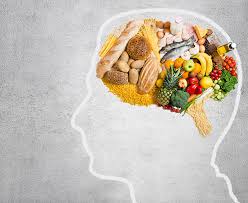
Breakfast and Brainpower: Why Students Should Never Miss It
Breakfast is vital for students as it fuels both the body and brain. It enhances concentration, memory, and learning capacity while stabilizing mood and energy throughout the day. Nutrient-rich foods like whole grains, protein, fruits, and dairy are especially beneficial. Skipping breakfast leads to fatigue, poor focus, and reduced performance.
💪 Fitness Guru
38 min read · 25, Aug 2025

Introduction
For many students, mornings are often rushed—books to pack, assignments to finish, and the race to get to class on time. In this hurry, one thing often gets skipped: breakfast. While it might seem like a small sacrifice, skipping the first meal of the day has a huge impact on brain performance, energy levels, and academic success.
Breakfast is often called the “most important meal of the day”—and for students, it’s absolutely true. A well-balanced breakfast fuels the brain, improves memory, boosts concentration, and keeps mood swings at bay. It’s not about eating just anything—it’s about eating the right foods that nourish both the body and mind.
In this article, we’ll explore why breakfast is essential for students, the science behind it, what to eat, what to avoid, and simple ways to make breakfast a daily habit. Breakfast has long been called the most important meal of the day, and while some might brush it off as just another saying, there is real science and truth behind it. For students, in particular, skipping breakfast can mean much more than just feeling a bit hungry before lunch—it can impact learning, concentration, memory, and even emotional well-being. The human brain is like an engine that runs on fuel, and after a night of fasting during sleep, the body craves energy to kickstart the day. Without breakfast, students often find themselves struggling to pay attention, feeling sluggish, or even irritable. On the other hand, a well-balanced breakfast works as the ultimate booster for brainpower, ensuring that young minds are alert, active, and prepared for the challenges of the classroom.
When students eat breakfast, they provide their bodies with glucose, which is the main source of energy for the brain. Glucose is critical because the brain, although it makes up only a small percentage of body weight, consumes a significant portion of the body’s energy. Without replenishing this fuel in the morning, brain function can dip, making it harder for students to concentrate on lessons, recall information, and think critically. Research has consistently shown that students who eat breakfast perform better in tasks that involve memory and attention compared to those who skip it. Whether it’s solving a math problem, participating in a debate, or preparing for an exam, the ability to think clearly is directly linked to the energy and nutrients provided at the start of the day.
Skipping breakfast not only affects mental clarity but can also influence mood and behavior. Hunger leads to irritability, fatigue, and restlessness, which in a school setting can cause students to lose focus and become easily distracted. Teachers often notice that students who have eaten breakfast are more engaged and cooperative, while those who haven’t may appear tired, inattentive, or even disruptive. A calm, nourished mind is better able to handle stress and peer interaction, which plays a big role in a student’s overall school experience. Imagine sitting through a two-hour class on an empty stomach—the mind drifts, the body feels weak, and every tick of the clock feels unbearable. That’s why breakfast is not just a meal but a mood stabilizer, shaping the way students approach their day socially and emotionally.
Another reason breakfast is so important is its impact on physical health, which indirectly boosts brain performance. A morning meal that includes a balance of carbohydrates, proteins, and healthy fats provides lasting energy and prevents the mid-morning crash that often comes from skipping food. Whole grains, fruits, eggs, nuts, and dairy products are excellent options that not only fuel the brain but also provide essential vitamins and minerals. Iron, for example, supports oxygen transport in the blood, while B vitamins are crucial for energy metabolism. Even hydration plays a role, as drinking a glass of water in the morning helps students feel more refreshed and alert. Over time, consistently eating a nutritious breakfast can contribute to better overall health, improved immunity, and reduced risk of lifestyle diseases. For growing students, this foundation is vital, as their bodies and brains are still developing and require proper nourishment every day.
In addition to immediate brainpower benefits, breakfast also influences long-term academic performance. Studies have revealed that students who regularly eat breakfast score higher on standardized tests and have better attendance records. The consistency of providing the brain with fuel every morning creates habits that reflect in school performance, discipline, and time management. A student who begins the day with a healthy routine is more likely to remain organized and motivated, setting the tone not just for that day but for the future. Skipping breakfast, on the other hand, often leads to over-snacking later in the day, which can result in poor dietary patterns and lack of focus during critical learning hours.
Unfortunately, many students skip breakfast for reasons such as lack of time, late waking, or a belief that it’s not necessary. In the fast-paced lives of students, especially those balancing academics with extracurricular activities, breakfast may seem like a low priority. However, the cost of this habit is far greater than the time it takes to eat a meal. Even something quick and simple, like a fruit with yogurt, a peanut butter sandwich, or a smoothie, can make a difference. Schools and parents also play an important role by encouraging breakfast culture and ensuring that healthy options are available and appealing. By creating awareness about its importance, the cycle of skipping breakfast can be broken, leading to better performance both inside and outside the classroom.
Breakfast is not just about food—it’s about setting the tone for the day. For students, it is the difference between starting the morning on a full tank versus running on empty. The brain requires consistent energy to function, and when students provide that energy first thing in the morning, they are giving themselves the best chance to succeed academically, emotionally, and socially. Beyond the classroom, these habits extend into adulthood, influencing work performance, health, and lifestyle choices. A strong morning routine, anchored by breakfast, is a lifelong investment in brainpower and well-being.
In the end, the message is simple yet powerful: students should never miss breakfast if they want to harness their full potential. It is the bridge between rest and productivity, between fatigue and focus, between distraction and determination. Every day offers new opportunities to learn, create, and grow, but these opportunities can only be seized with a mind that is fueled and ready. Breakfast is more than a meal—it is the first step toward success. For every student hoping to make the most of their education and their future, starting the day with breakfast is not just a choice, it is a necessity.
Why Breakfast Matters for Students
Breakfast literally means “breaking the fast” after a night’s sleep. After 8–10 hours without food, the body and brain need fresh energy to function. For students, this energy is critical because mornings are often when learning, memory, and focus are most demanded.
Without breakfast:
- The brain runs on low fuel
- Concentration drops
- Irritability increases
- Learning becomes harder
With breakfast:
- Energy levels stay stable
- Brain receives steady glucose supply
- Attention span increases
- Memory retention improves
The Science Behind Breakfast and Brainpower
The brain uses glucose as its main energy source. A healthy breakfast provides this glucose in a steady, controlled way. Studies show that students who eat breakfast perform better in:
- Memory Tests – Recall and retention improve when the brain has enough fuel.
- Problem Solving – A nourished brain can think critically and process faster.
- Attention Span – Breakfast eaters stay alert longer in class.
- Emotional Balance – Blood sugar stability reduces anxiety, mood swings, and irritability.
Skipping breakfast can cause low blood sugar, which often results in fatigue, headaches, lack of focus, and poor classroom engagement.
Benefits of Eating Breakfast for Students
1. Boosts Concentration and Focus
Breakfast improves mental clarity. A nutritious start allows students to absorb lessons better and stay attentive in class.
2. Enhances Memory and Learning
Brain cells rely on glucose. Without it, memory recall and retention weaken. Breakfast ensures the brain has the fuel needed to store and retrieve information.
3. Improves Academic Performance
Research shows that students who eat breakfast regularly score higher in tests and show better problem-solving skills.
4. Maintains Energy Levels
Instead of feeling sluggish, students remain energized throughout the morning, reducing reliance on caffeine or sugary snacks.
5. Stabilizes Mood
Skipping breakfast often leads to irritability, impatience, or stress. A healthy meal in the morning keeps emotions balanced.
6. Supports Healthy Growth
For growing students, breakfast provides essential nutrients like calcium, iron, and protein needed for brain and body development.
What Makes a Healthy Student Breakfast?
Not all breakfasts are equal. A good breakfast should include a mix of complex carbs, protein, healthy fats, and vitamins.
- Complex Carbohydrates
- Provide slow, steady energy release.
- Sources: Oats, whole-grain bread, quinoa, fruits.
- Protein
- Supports alertness and muscle repair.
- Sources: Eggs, milk, yogurt, nuts, seeds.
- Healthy Fats
- Boost brain health and memory.
- Sources: Peanut butter, avocado, flaxseeds, walnuts.
- Vitamins & Minerals
- Essential for concentration and immunity.
- Sources: Fruits, vegetables, smoothies.
What to Avoid in Breakfast
- Sugary cereals – Cause energy spikes and crashes
- Fried foods – Make students sluggish and tired
- Excess caffeine – Leads to anxiety and dehydration
- Skipping altogether – The worst option for learning and health
Quick and Nutritious Breakfast Ideas for Students
- Oatmeal topped with fruits and nuts
- Whole wheat toast with peanut butter and banana
- Smoothie with spinach, banana, and yogurt
- Boiled eggs with multigrain bread
- Vegetable poha or upma
- Paratha with curd and salad
- Fruit bowl with chia seeds
Daily Breakfast Routine for Students
Morning
- Wake up 15 minutes earlier to allow time for breakfast
- Drink a glass of warm water to wake the digestive system
- Eat a balanced breakfast of carbs + protein + fruit
Mid-Morning Boost
- Carry a fruit, handful of nuts, or homemade energy bar
- Stay hydrated with water or fresh juice
Evening Reminder
- Prepare ingredients for the next day’s breakfast in advance (overnight oats, chopped fruits, boiled eggs)
Weekly Breakfast Habits to Build
- Plan breakfast for 5 school days in advance
- Experiment with 1 new healthy recipe each week
- Make breakfast a family routine for consistency
- Keep healthy staples (eggs, oats, fruits) always stocked
- Avoid skipping breakfast, even on exam days or busy mornings
Common Problems Students Face & Solutions
“I don’t have time.”
→ Prepare quick options like overnight oats, smoothies, or fruit sandwiches.
“I’m not hungry in the morning.”
→ Start small with fruit or milk; your body will adjust.
“I only crave junk in the morning.”
→ Slowly swap sugary items with natural sweet options like fruits and honey.
“I feel sleepy after breakfast.”
→ Avoid heavy fried foods; choose light, balanced meals instead.
Myths About Breakfast: Busted!
“Skipping breakfast helps me stay thin.”
→ False. Skipping leads to overeating later and unhealthy weight gain.
“Coffee is enough for breakfast.”
→ No. Coffee may wake you up but provides no real nutrition.
“Only kids need breakfast, not older students.”
→ Wrong. Teenagers and college students need it even more for brain performance.
“Fruit juice is a perfect breakfast.”
→ Not entirely true. Juice alone spikes sugar. Pair it with protein or whole grains.
“I can eat anything in the morning and it’s fine.”
→ False. Quality matters—choose nutrient-dense foods, not junk.
Sample Daily Breakfast Plan for Students
Breakfast
Whole-grain toast with scrambled eggs and a fruit smoothie
Mid-Morning Snack
Handful of almonds or apple slices with peanut butter
Lunch
Balanced meal of rice/roti, dal, veggies, and salad
Evening Snack
Homemade granola bar or banana
Dinner
Light meal—soup, chapati with veggies, or grilled paneer
Conclusion
Breakfast is not just another meal—it is brain fuel. For students, eating breakfast daily is the difference between struggling through the morning and excelling in class. It sharpens focus, improves memory, enhances mood, and builds lasting energy for the day.
Skipping breakfast might save a few minutes in the morning, but it costs hours of lost concentration and learning. By choosing the right foods and building simple routines, students can unlock their full brainpower.
So tomorrow morning, instead of rushing past the kitchen, pause and nourish yourself. That one healthy meal could be the secret ingredient to better grades, sharper focus, and a brighter future.
Start your day smart. Start with breakfast.
Q&A Section
Q1:- Why is breakfast often called the most important meal of the day for students?
Ans :- Breakfast replenishes glucose levels after overnight fasting, giving the brain essential fuel to enhance concentration, memory, and problem-solving abilities in students.
Q2:- How does eating breakfast improve memory and learning?
Ans :- Nutrient-rich breakfasts supply glucose, vitamins, and minerals that activate brain neurotransmitters, improving attention span, recall, and overall cognitive performance.
Q3:- What happens if students skip breakfast regularly?
Ans :- Skipping breakfast can lead to fatigue, irritability, slower reaction times, and difficulty focusing, all of which negatively affect academic performance.
Q4:- Which nutrients in breakfast directly support brain health?
Ans :- Proteins, omega-3 fats, complex carbs, vitamins (like B12), and minerals (iron, zinc) provide energy and improve nerve signaling for better brain function.
Q5:- How does breakfast influence students’ mood and mental health?
Ans :- A healthy breakfast stabilizes blood sugar levels, reducing anxiety and stress while promoting calmness, positive mood, and emotional stability.
Q6:- Can breakfast improve physical energy in addition to brainpower?
Ans :- Yes, balanced breakfasts provide sustained energy, preventing lethargy and ensuring students remain active and alert during classes and activities.
Q7:- What types of breakfast foods are best for boosting brainpower?
Ans :- Whole grains, fruits, eggs, dairy, nuts, and seeds release energy steadily, keeping the brain sharp and preventing mid-morning energy crashes.
Q8:- How does breakfast help with academic performance in exams and tests?
Ans :- Eating breakfast before exams sharpens concentration, improves memory recall, and boosts confidence, enabling students to perform at their best.
Q9:- Is there a link between breakfast and long-term brain development in children?
Ans :- Yes, consistent nutritious breakfasts support brain growth, neural connections, and learning capacity, especially in young children and adolescents.
Q10:- How can busy students ensure they don’t skip breakfast?
Ans :- Preparing simple options like smoothies, overnight oats, fruit with yogurt, or whole-grain toast ensures a quick, healthy, and energizing breakfast.
Similar Articles
Find more relatable content in similar Articles

5 Common Skincare Routine Mistakes That Damage Your Skin (A..
A good skincare routine keeps.. Read More

Military Fitness Secrets the Public Doesn’t Know...
“Discover the hidden methods b.. Read More

Circadian Rhythm Fitness – Matching Workouts with Your Inter..
“Discover how aligning your wo.. Read More

Survival Fitness – Training Your Body for Natural Disasters...
Survival fitness equips your b.. Read More
© 2024 Copyrights by rFitness. All Rights Reserved.